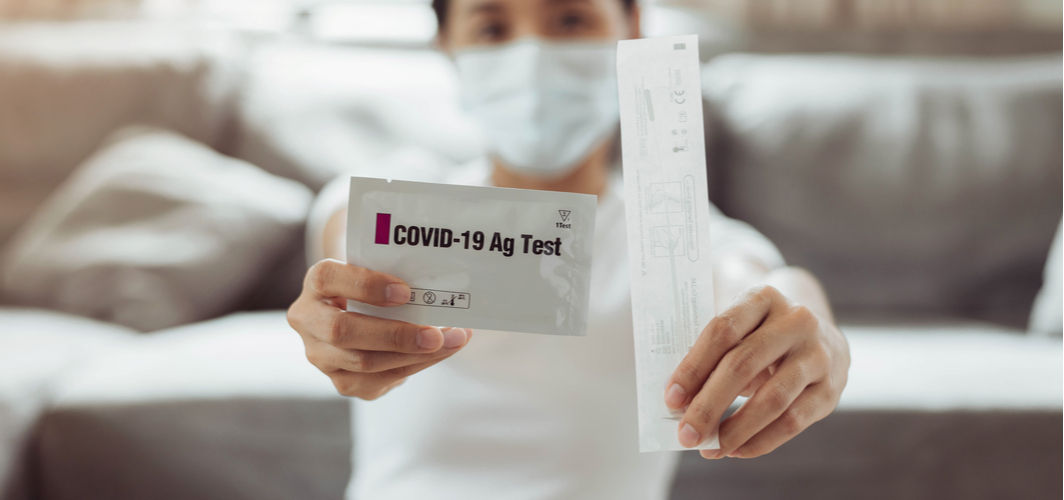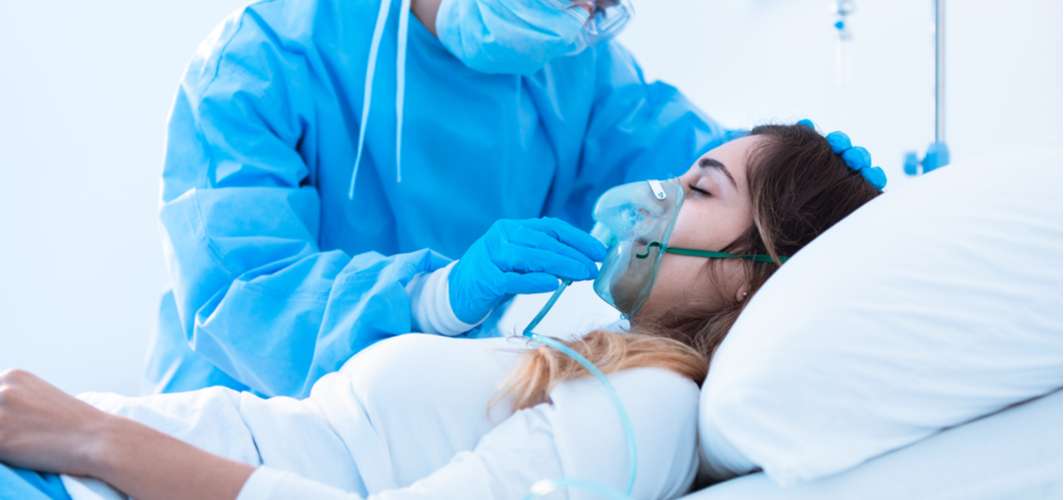Coronavirus Updates
Can a COVID-19 Self-test Detect the Omicron Variant?
4 min read
By Apollo 24/7, Published on - 07 January 2022, Updated on - 18 October 2022
Share this article
0
1 like

After experiencing a devastating second wave of the pandemic in April and May last year, India is once again witnessing soaring cases of COVID-19. This time the surge in cases has coincided with the arrival of Omicron, a new variant that was first identified in South Africa in late 2021. Scientists attribute the current wave of infections to this new variant which is far more transmissible than any other strain identified so far. Interestingly, many of the Omicron symptoms are similar to those caused by the common cold.
Although Omicron and the common cold are very different, researchers say that both these conditions have certain overlapping symptoms. This can make it difficult to determine whether the symptoms are a result of Omicron infection or the common cold. To avoid this problem, many people have now taken recourse to at-home COVID-19 self-testing kits. The self-testing kits are surely a blessing in disguise as they allow detecting any possible infection at home. Nevertheless, there are some concerns around their accuracy and reliability in detecting the new variant. The article explores the effectiveness of self-testing kits against the Omicron variant in detail.
About the COVID-19 Self-testing kits
COVID-19 self-tests, also known as over-the-counter (OTC) tests, are diagnostic tools that can be easily used at home or any other place to determine if a person has COVID-19 or not. Most of the COVID-19 self-test kits currently available in India are rapid antigen tests. These tests rely on nasal or oral swabs to search for specific protein pieces of the SARS-CoV-2 virus. Rapid antigen test kits can offer results in less than 30 minutes.
A positive self-test result usually implies that the test has detected the SARS-CoV-2 virus in the swab sample. This means that you are very likely to have an infection. On the other hand, a negative test result means that the test has not detected the virus. However, this does not mean that you don’t have an infection.
If you have Omicron symptoms, then repeating the test within a few days, or following it up with an RT-PCR (reverse transcription-polymerase chain reaction) test, is highly recommended.
Recommended reading: Can RT-PCR Tests Detect the Omicron Strain?
Accuracy of COVID-19 Self-Test Kits in Detecting Omicron
The COVID-19 self-test kits are fairly accurate in detecting COVID-19 infection. However, as with all COVID-19 tests, it is possible to get a false negative or false positive. This means that you could get a negative result and still be infected or get a positive result and not actually have the virus.
The chances of getting a false positive or a false negative result are relatively higher with COVID-19 self-test kits than lab-based molecular tests like RT-PCR.
According to a recent update by the US Food and Drug Administration (FDA), preliminary research indicates that at-home COVID-19 self-test kits can detect COVID-19 infections caused by the Omicron variant. However, the agency has said that the tests may have reduced sensitivity when it comes to detecting the Omicron variant. Scientists say that while the at-home tests may have reduced sensitivity to the new variant, they are still a useful tool during severe outbreaks when RT-PCR labs can take several days to deliver a result.
Takeaway
Since it was first detected in South Africa, the Omicron variant has caused a massive surge in global COVID-19 cases. The variant has also led to fears of a third wave in India. In the prevailing circumstances, a lot of people are worried about their risk of contracting the new variant. The concerns have been exacerbated by the fact that certain Omicron symptoms are similar to those of the common cold.
To avoid the risk of going out for diagnostic tests, many have started opting for COVID-19 self-test kits. The easy-to-use diagnostic tools can be used at home to check if one has an infection or not. While the kits are not as accurate as the RT-PCR tests, they can still be used in certain situations when it is not possible to go out for a test or when it can take several days for an RT-PCR test to provide a result.
Coronavirus Updates
Leave Comment
Recommended for you

Coronavirus Updates
Reopening of Schools: Keeping Children Safe from COVID-19
The lockdown imposed in the wake of the COVID-19 pandemic forced the closure of schools and other educational institutions in March 2020.

Coronavirus Updates
How to Boost Immunity During COVID-19
A healthy immune system can play an important role in reducing the severity and lowering the risk of complications due to COVID-19.

Coronavirus Updates
Why Do Some COVID-19 Patients Require Oxygen Therapy?
Due to inflammation and infection in the lungs, some people suffering from severe COVID-19 infection develop hypoxemia (low oxygen levels in the blood) and require medical oxygen to restore the oxygen saturation of the body.
Subscribe
Sign up for our free Health Library Daily Newsletter
Get doctor-approved health tips, news, and more.
Visual Stories

Explained: The Highly Transmissible SARS-CoV-2 Variants
Tap to continue exploring
Recommended for you

Coronavirus Updates
Reopening of Schools: Keeping Children Safe from COVID-19
The lockdown imposed in the wake of the COVID-19 pandemic forced the closure of schools and other educational institutions in March 2020.

Coronavirus Updates
How to Boost Immunity During COVID-19
A healthy immune system can play an important role in reducing the severity and lowering the risk of complications due to COVID-19.

Coronavirus Updates
Why Do Some COVID-19 Patients Require Oxygen Therapy?
Due to inflammation and infection in the lungs, some people suffering from severe COVID-19 infection develop hypoxemia (low oxygen levels in the blood) and require medical oxygen to restore the oxygen saturation of the body.